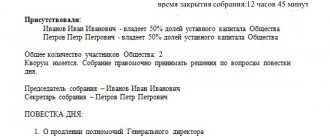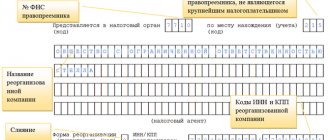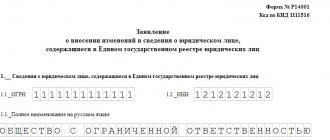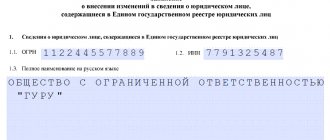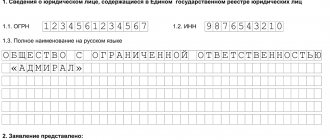Regulatory legal acts upon dismissal due to a change of owner
Consideration of the procedure for dismissing an employee during a change of owner implies a close connection between the labor and civil codes of the Russian Federation, which explain in detail the rights and obligations of both parties.
Article 75.81 of the Labor Code of the Russian Federation presents all categories of employees who are subject to dismissal upon a change of ownership and specifies the time frame for resolving the issue that has arisen. The Civil Code provides for the consideration of disputes between two parties during the procedure.
An important aspect when transferring property into private ownership is the Law “On Privatization dated December 21, 2001 No. 178 FZ. This provision is necessary when considering a possible dispute over ownership.
When resolving labor disputes, it is necessary to submit the Supreme Court Resolution No. 2 of March 17, 2004, which contains all the necessary information on the legality of the procedure in accordance with the law.
Important
Dismissal of an employee upon a change of owner is impossible without a legal basis prescribed in the current legislation of the Russian Federation. If there is no basis, the procedure will be carried out in violation of the law.
What is meant by a change in ownership of an organization’s property?
The concept of “change of ownership” is absent from legislation today. At the same time, in Art. 213 of the Civil Code of the Russian Federation there is a definition according to which the owner of the property of a business company is this company. This position, along with the resolution of the Supreme Court of the Russian Federation dated March 17, 2004 No. 2, completely removes the erroneous opinion according to which the transfer of authorized capital or the right to own shares should be considered a change of owner.
Today, the legislator identifies categories of actions that fall under the concept of “change of owner” and allow one to take advantage of the provisions of Art. 75 Labor Code of the Russian Federation. It is worth highlighting here:
- Transfer of property from state to private ownership . Occurs at the moment of privatization, sale of property complexes. Must apply entirely to the entire property owned by the company.
- In the event of a reverse transfer of private property into state ownership . Occurs in the event of nationalization or buyback of property by the government (local municipality).
- Change in the level of state property . The facility ultimately remains state-owned. Only the level changes. For example, from federal it becomes municipal, or it is transferred in the opposite direction.
Thus, a change of owner should be understood as a complete transfer of all property from the ownership of one entity to another and in the opposite direction. Applies to procedures of separation, division, reorganization, when property is absorbed by another business entity or separated from it.
Remember, if shareholders change in a company, this should not be regarded as a change of legal entity. After all, the company’s property remains in the former subjects of use. Here are the norms of Art. 75 of the Labor Code of the Russian Federation is unacceptable.
Cases of changes in the ownership of an organization
When studying legal acts of legislation, it is impossible to present a clear concept of a change of owner in any organization. At the same time, some provisions explain the procedure for completing the procedure:
- in accordance with the resolution of the Plenum No. 2, paragraph 32 of the Supreme Court, a change of ownership is considered to be the transfer of property rights from one person to another;
- The first article of Law No. 178 FZ implies a change of owner during the privatization of an enterprise and its subsequent transfer to private ownership. In this case, the procedure should be free of charge;
- Art. 235 Civil Code of the Russian Federation and 2 art. 218 of the Civil Code of the Russian Federation considers the process of transferring property from private individuals to the state through transactions for the alienation of property (purchase and sale).
In order to carry out the transfer of property, state registration of property is required in accordance with the norms of the Civil Code of the Russian Federation. Registration of the procedure is possible subject to compliance with the above-described legal provisions prescribed in the current legislation.
A change of owner is considered to be a change in legal entity, the concept of which is clearly defined in Art. 48 Civil Code of the Russian Federation:
- a legal entity is understood as an organization that has separate property, is responsible in court and fulfills all necessary obligations;
- mandatory registration of a legal entity in the unified state register;
- state and municipal institutions are classified as legal entities, since their founders have certain rights to this property;
- Corporate organizations are also legal entities because their members have corporate rights.
For your information
A change in the composition of the founders is not a change in ownership, therefore, in this case, the dismissal procedure is not applicable. It is important to distinguish this concept when making an appropriate decision.
Explanations of the Supreme Court of the Russian Federation on dismissal under clause 4, part 1, art. 81 Labor Code of the Russian Federation
Courts must keep in mind that dismissal under paragraph 4 of part one of Article 81 of the Code in connection with a change in the owner of the organization’s property is permissible only in relation to the head of the organization, his deputies and the chief accountant.
It should be taken into account that termination of an employment contract on the above grounds is possible only in the event of a change in the owner of the organization’s property as a whole. These persons cannot be dismissed under paragraph 4 of part one of Article 81 of the Code when the jurisdiction (subordination) of the organization changes, unless there is a change in the owner of the organization’s property.
A change in the owner of an organization’s property should be understood as a transition (transfer) of ownership of the organization’s property from one person to another person or other persons, in particular during the privatization of state or municipal property, i.e. upon alienation of property owned by the Russian Federation, constituent entities of the Russian Federation, municipalities, into the ownership of individuals and (or) legal entities (Article 1 of the Federal Law of December 21, 2001 N 178-FZ “On the privatization of state and municipal property”, Article 217 of the Civil Code of the Russian Federation); when property owned by an organization is converted into state property (last paragraph of paragraph 2 of Article 235 of the Civil Code of the Russian Federation); when transferring state enterprises to municipal ownership and vice versa; when transferring a federal state enterprise to the ownership of a constituent entity of the Russian Federation and vice versa.
Since, in accordance with paragraph 1 of Article 66 and paragraph 3 of Article 213 of the Civil Code of the Russian Federation, the owner of property created from the contributions of the founders (participants) of business partnerships and companies, as well as produced and acquired by business partnerships or companies in the course of their activities, is the company or partnership, and participants, by virtue of paragraph two of paragraph 2 of Article 48 of the Civil Code of the Russian Federation, have only rights of obligations in relation to such legal entities (for example, to participate in the management of the affairs of a partnership or company, to take part in the distribution of profits), a change in the composition of participants (shareholders) cannot serve as a basis for termination of an employment contract under clause 4 of part one of Article 81 of the Labor Code of the Russian Federation with the persons listed in this norm, since in this case the owner of the property of a business partnership or company still remains the partnership or company itself and there is no change in the owner of the property (clause 32 of the Resolution Plenum of the Supreme Court of the Russian Federation dated March 17, 2004 N 2 “On the application by the courts of the Russian Federation of the Labor Code of the Russian Federation”)
See also comments to Article 81 of the Labor Code of the Russian Federation
Categories of employees subject to dismissal
The concept of a change in the owner of an organization does not have direct legal grounds for terminating an employment relationship. The new owner has the right to use Art. 75 of the Labor Code of the Russian Federation and dismissal of workers in such positions:
- head of the enterprise;
- assistant managers;
- Chief Accountant.
Important
The above list of positions subject to dismissal is final, therefore, in case of violation of the law, the injured party has the right to file a claim in court.
In some cases, employers often fire employees who are not listed in the above list, therefore, when the case is considered in court, a positive satisfaction of the claim will be in favor of the dismissed employee (decision No. 33-175-15 of 01/12/2015).
For your information
When there is a change of owner, employees of the relevant enterprise have the right to dismiss at their own request due to changed circumstances (Clause 6, Article 77 of the Labor Code of the Russian Federation). The procedure is carried out according to the usual algorithm by submitting an application to the personnel department.
How labor relations change when ownership changes
The law gave the new owner the power to replace the management team of the company he acquired. The list included the director, his deputies and the chief accountant. This rule does not apply to other persons. It is important to note that the replacement of the top of the company can be carried out within three months from the date of state re-registration of the company. Then the norm ceases to apply.
In this regard, several nuances should be highlighted regarding the termination of employment contracts with management personnel:
- inform in writing the managers with whom it is planned to terminate the employment relationship, but no later than three months after completion of the state registration procedure;
- make sure that the notification is received against signature. If an employee refuses to sign it, a report about this should be drawn up;
- prepare and sign an order for the dismissal of the manager. The employee should be familiarized with this document no later than three days after registration;
- the work book is filled out, a full calculation is made, compensation provided by law is calculated and paid (at least three average monthly salaries).
Regarding other employees, the procedure for changing the staff or number can “start” only after the state registration of the company under the new owner is completed. Dismiss someone under Art. 75 of the Labor Code of the Russian Federation, except for managers, the new owner has no powers.
If layoffs are not planned, they can simply put stamps in the work books indicating a change in the name of the organization.
Remember, the norm of Art. 75 of the Labor Code of the Russian Federation applies exclusively to the first person, his deputies and the chief accountant. And then, no later than three months from the date of receipt of the right to dispose of property.
The main personnel differences between a change of ownership of an organization and reorganization in this video:
When an employee cannot be fired under the current circumstances
Dismissal of an employee upon change of ownership cannot be carried out if the employee is currently on sick leave or on vacation.
The current legislation of the Russian Federation provides for cases in which the dismissal of certain categories of employees is prohibited:
- pregnancy in women;
- single mothers with minor children under 14 years of age or with disabilities;
- women with small children under 3 years of age;
- workers raising a child without a mother;
- sole breadwinners in a family with children under 3 years of age;
- the employee has a large family in which he is one employed person.
To whom does termination of an employment contract not apply?
Even if n
You can show a person the door about a position; there are cases when you still can’t fire him.
This:
- a single mother with a young child (under 14 years old), or the mother of a disabled child;
- a woman with a child under three years old;
- pregnant woman;
- guardian of a child left without mother's care;
- the only breadwinner in a family with a young child or a disabled child.
There is also a ban on depriving people of work while on sick leave and on vacation.
Registration of the dismissal procedure
Important
Dismissal can be carried out no later than 3 months from the date of change of ownership of the organization’s property.
- The procedure for dismissing an employee when there is a change of owner has a certain algorithm in accordance with the norms of the Labor Code of the Russian Federation:
- issuing a written notice to the employee about the upcoming termination of the employment relationship (not a mandatory item, since the Labor Code of the Russian Federation does not establish the employer’s obligation to notify employees in advance about the termination of the employment contract);
- issuance of a dismissal order, which is signed by the employee and the new head of the enterprise, as well as by an employee of the human resources department;
- full settlement with the dismissed employee and payment of all necessary monetary compensation;
- making an entry in the work book and saving a copy in the archive of the enterprise;
- issuance of a work book and a special journal entry to record the movement of documentation.
For your information
The new owner of the enterprise may, if desired, offer the dismissed employee a transition to a new position, subject to the consent of the employee.
Who is subject to dismissal due to a change in property ownership?
According to civil law, the owner of an enterprise can be a legal entity.
When the owner of an organization's property changes, not any employee can be fired on this basis, but only strictly certain ones.
When the owner of an enterprise's property changes, the following are subject to dismissal:
- Chief Accountant.
- Head of the enterprise.
- Key deputy managers.
Only these officials can be dismissed upon a change of ownership of the enterprise. The remaining employees can resign either at their own request or continue working under newly concluded contracts.
Changes may be made in the regulatory documents of the enterprise or in some terms of the contract between the employer and employees, but only people occupying certain positions can be fired when the owner changes.
It is important that the new property owner has only three months to terminate employment contracts with the previous management.
If the contract with the manager and chief accountant is not terminated within three months, the new owner later does not have the right to dismiss these workers under this article.
At the same time, there are groups of people who cannot be fired, regardless of their positions:
- Single mother.
- The only breadwinner in a family with disabled or young children.
- Guardian of a child without parental care.
- A woman expecting a child.
- Mother of a child under three years old.
In these cases, termination of the employment contract can only occur if the initiative comes from the employee himself.
When non-managerial employees are dismissed, problems may arise for the new owner of the organization's property.
Officially, he does not have the right to fire any of the ordinary workers, since a change of owner does not entail a change in the working composition of the enterprise.
Under what article are employment contracts terminated?
According to Labor Law, the basis for dismissal in this case is precisely the change of owner of the organization. This is stipulated in Article 81 of the Labor Code of the Russian Federation, or more precisely, paragraph 4 of part 1.
This article is the basis for termination of employment contracts. It is also entered into the employee’s work book.
This entry can only be made within 3 months from the date of change of ownership of the property.
Then dismissal on this basis is considered illegal.
Entry in the work book
When an employee is dismissed due to a change of owner, a special entry is made in the work book, which is the basis for the procedure (Resolution of the Ministry of Labor of the Russian Federation No. 69 of March 10, 2013).
After entering the date in the column “employment information”, indicate the following text: “dismissed due to a change of owner, paragraph 4, part one, art. 81 Labor Code of the Russian Federation." The last column indicates the number and date of the order, which is the basis for dismissal.
The completed book is given to the dismissed employee with the company seal affixed, the signature of the HR department employee and the owner of the document. All data is entered into the accounting book, which is subsequently archived and remains at the enterprise.
Payments upon dismissal
The procedure for processing payments in connection with a change of owner is carried out in accordance with Art. 181 Labor Code of the Russian Federation. Upon termination of an employment contract with a manager, chief accountant or deputy. boss, the new owner is obliged to pay benefits in the amount of three months' salary (with the exception of cases provided for by law).
Also, the dismissed employee receives the rest of his salary and compensation for unused vacation.
Art. 279 of the Labor Code of the Russian Federation provides for the mandatory payment of compensation to the manager upon termination of an employment contract. The amount must be at least three times the average monthly salary.
The compensation amount does not include the following charges:
- salary balance;
- saved salary in case of business trip, vocational training or additional education;
- reimbursement of expenses incurred during business trips or moving to another region;
- compensation for all unused vacations;
Important
The manager has the right not to pay benefits if the reason for dismissal is disciplinary action for a number of reasons (violation of the Labor Code of the Russian Federation).
Consequences for the employer
If the rights of a dismissed citizen are violated and labor legislation is not observed, the employee has the right to file a claim to restore the lost position.
If the departmental structure of the enterprise has changed, then this aspect is not grounds for forced dismissal. If desired, the new owner can dismiss workers due to layoffs or for any other reason prescribed in the Labor Code of the Russian Federation.
Violation of norms upon dismissal due to a change of ownership implies liability by the employer in accordance with Art. 5.27 Code of Administrative Offences. The solution to the issue of eliminating the management staff may be alternative proposals for transfer to another position, subject to the consent of the person concerned.
Is it possible to challenge dismissal?
When considering the question of whether it is possible to challenge dismissal in connection with a change of owner, it should be understood that consideration of the case in court implies the presence of irrefutable evidence that the rights of the dismissed employee were violated during the procedure.
It is best to file a claim directly to the court, since when considering the case, the plaintiff’s costs are minimal, and if the claim is satisfied, it is possible to receive compensation for moral damage caused.
Violation of employee rights occurs in the following cases:
- lack of written form of the concluded employment contract;
- incorrect entry of data into the document;
- termination of a contract with a person who is not included in the category of employees subject to dismissal upon a change of ownership.
If the claim is satisfied, the employee can count on reinstatement and receiving his previous job with the same salary. Corresponding changes are made to the work book and personal card.

